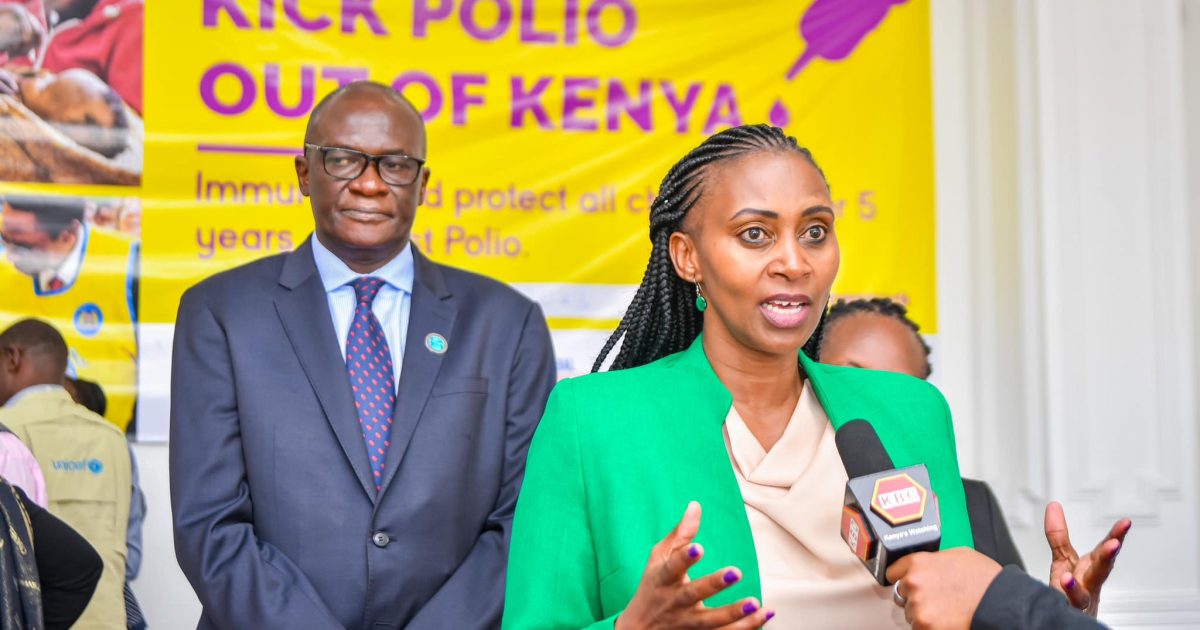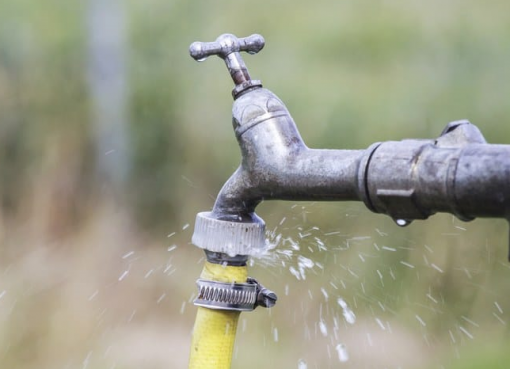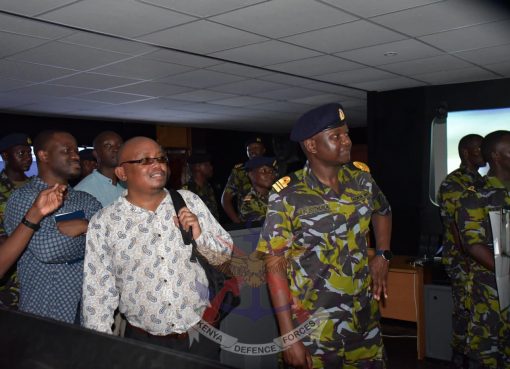The Ministry of Health will in the next few days launch a polio vaccination campaign in 10 counties with the highest risk of polio transmission.
Public Health and Professional Standards Principal Secretary (PS) Ms. Mary Muthoni Muriuki said that the move comes after the recent developments where six poliovirus cases were detected among children in the Hagadera Refugee Camp in Garissa County.
Ms. Muriuki, speaking in Nairobi during the national stakeholder meeting for the emergency polio vaccination campaign, said that through diligent routine surveillance activities, healthcare workers identified these cases by analysing stool samples taken from the affected children and subsequently sent them to the Kenya Medical Research Institute (KEMRI).
“The samples tested positive for the presence of poliovirus. Further examinations conducted in Atlanta, USA, confirmed the virus’s similarity to the strain responsible for an outbreak in a neighbouring country,” said Ms. Muriuki.
The PS said that in response to these new challenges, the Ministry of Health has taken swift action and identified ten counties with the highest risk of polio transmission, namely Nairobi, Kiambu, Kajiado, Garissa, Kitui, Machakos, Tana River, Lamu, Wajir, and Mandera as the focal points of the emergency polio vaccination campaign.
“The three round campaign which aims to reach 7.4 million children under five in three rounds will be launched at Ruiru Level 4 Hospital, Kiambu County, this Thursday,” she said.
Ms. Muriuki added that the first round of this campaign is scheduled from Thursday, 24th to 28th August 2023 with initial focus on Kiambu, Nairobi, Kajiado, and Garissa counties, “ where we aim to vaccinate approximately 1.8 million children.”
“Subsequently, the second and third rounds will target 2.8 million children each. They will be conducted between September and October 2023 in 10 counties: Kiambu, Nairobi, Kajiado, Garissa, Lamu, Tana River, Wajir, Mandera, Kitui, and Machakos Counties,” explained the PS.
She reiterated that decades ago, Kenya was faced with the challenge of wild poliovirus, causing immense suffering among citizens. “As recently as 39 years ago, our nation reported the last case of indigenous wild poliovirus,” she said.
Ms. Muriuki said that in 1988, the World Health Assembly adopted a resolution for the worldwide eradication of polio, marking the launch of the Global Polio Eradication Initiative, spearheaded by national governments, WHO, Rotary International, the US Centers for Disease Control and Prevention (CDC) and UNICEF.
“Kenya’s resolute determination has resulted in a remarkable achievement—a decade of polio-free status. This significant milestone stands as a testament to our unwavering commitment in the battle against this incapacitating disease, reflecting the strides we’ve made in safeguarding the health and well-being of our nation’s children,” she said.
She added that Kenya’s efforts align with the Global Polio Eradication Initiative (GPEI), a monumental international endeavor that has significantly reduced polio cases globally. From a staggering 350,000 cases across more than 125 countries, the number has dwindled to a mere nine cases, primarily located in select countries in Asia and Africa.
“Our country’s efforts contribute not only to our national health goals but also to the international progress toward Sustainable Development Goals (SDGs) and efforts toward polio eradication as envisioned by the World Health Organization (WHO),” she said.
“As a Ministry, we have spearheaded this fight against polio with unwavering commitment. It’s vital to acknowledge the role immunization has played in our progress. Immunization, particularly of children under five, has been a cornerstone of our approach. This cost-effective public health intervention has been instrumental in driving down polio cases and creating a safer environment for our children.”
The PS said that despite these achievements, Kenya must acknowledge that it is not immune to the risks of polio resurgence, especially in the face of international spread.
“As a Ministry, we recognize that the fight against polio is not the responsibility of the Ministry alone. It is a collective mission that requires the support of every Kenyan. This is where the media fraternity, among other stakeholders, plays a pivotal role,” said Ms. Muriuki.
“It cannot go without emphasizing that this battle against polio is far from over, and our determination remains resolute. We extend our gratitude to our partners, including the World Health Organization, UNICEF, Rotary International, United Nations High Commission for Refugees (UNHCR), Bill and Melinda Gates Foundation, USAID, Kenya Red Cross, CDC, IOM, and many others,” said the PS.
Ms Muriuki extended gratitude to County Governments, other government ministries, local NGOs, faith-based organizations, community leaders, religious leaders, teachers and other stakeholders for their support.
By Joseph Ng’ang’a





